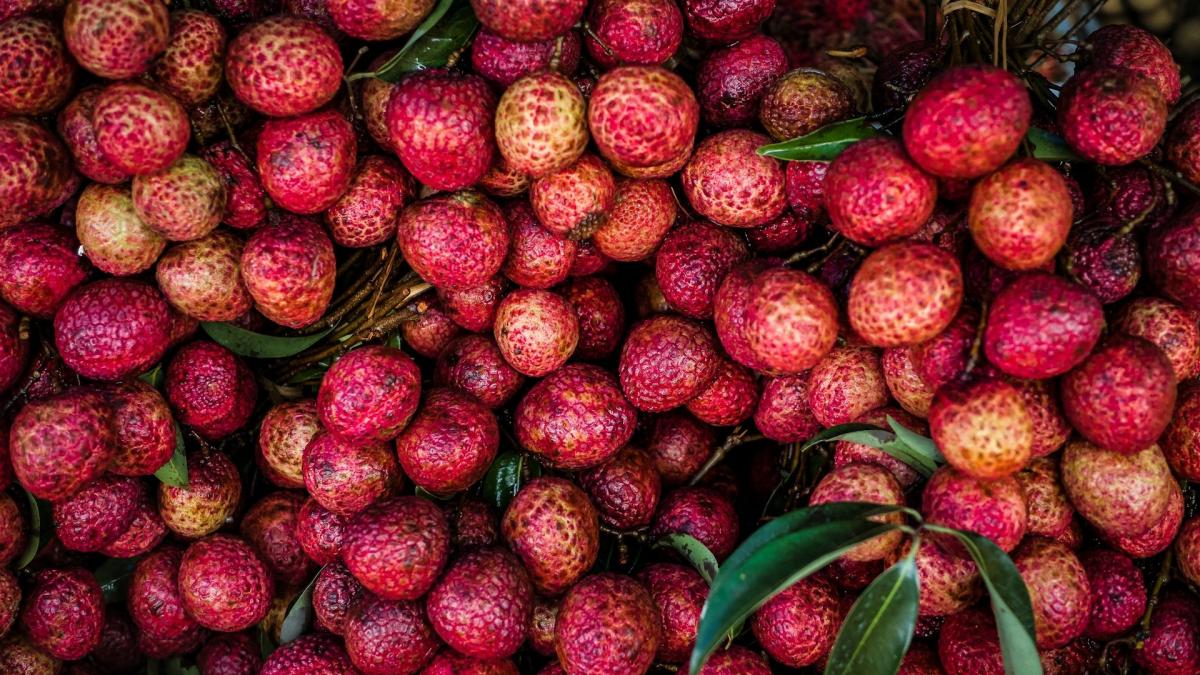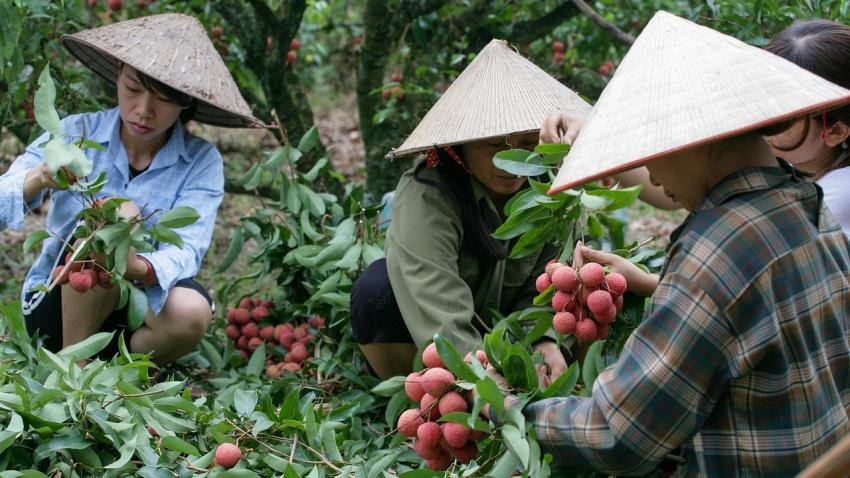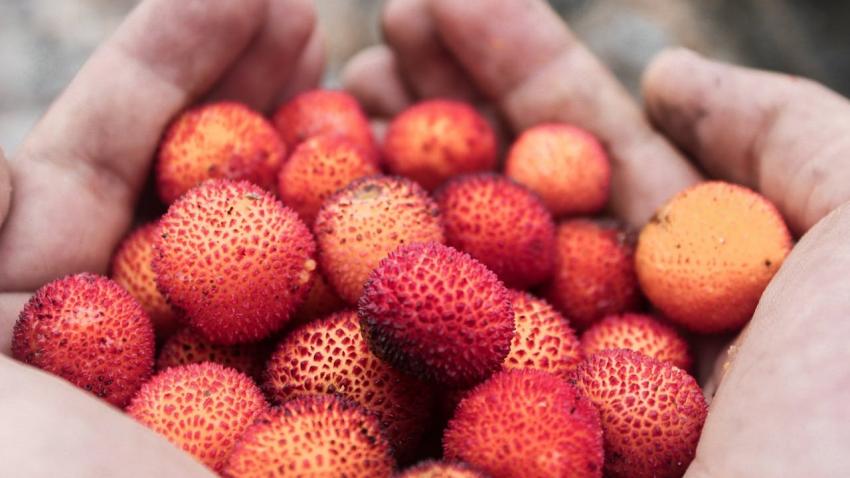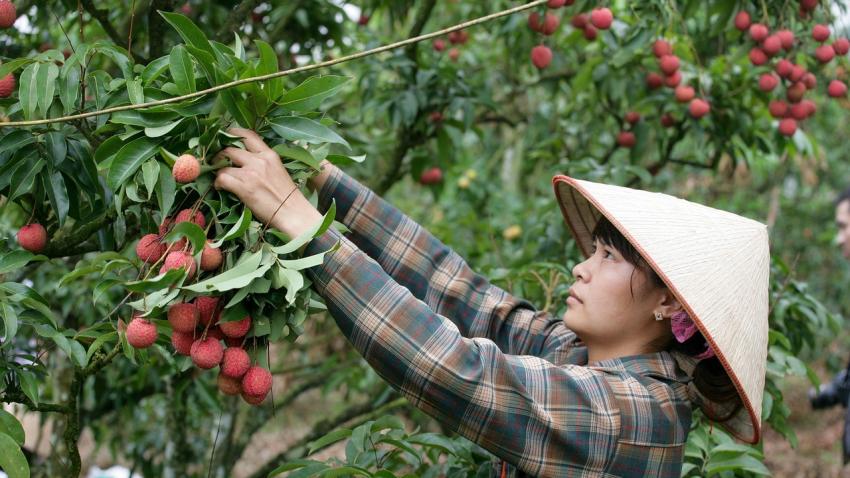You are here
Back to topNew Technology Allows Lychee Preservation for up to 18 Months

Whenever there is a bumper harvest for lychees, farmers seldom reap the benefits. A surplus of the fruit leads to low market prices, reducing the profits for growers. Conversely, during a lean year, the limited supply causes prices to spike, hurting consumers. The fundamental reason for these extreme price fluctuations is the difficulty of preserving lychees after picking.
This year is a lean year for lychees, and the news that 300 metric tons of Guangdong lychees, frozen for 10 months, are now being thawed and released onto the market has recently become a hot topic in China. Searches on Chinese e-commerce platforms reveal that frozen lychees from Guangdong are being sold for around 84 Chinese yuan ($11.60) per kilogram, under the slogan “enjoy lychees all year round.”
In China, lychees have traditionally been regarded as quick to spoil. As early as the Western Han dynasty, in his poem “Shanglin Fu” (“Rhapsody of the Imperial Park”), Sima Xiangru referred to lychees as 离支 (“li zhi”) — a play on words suggesting that the fruit spoils soon after it is parted (离, “li”) from the branch (支, “zhi”). The Tang dynasty poet Bai Juyi, in his famous preface to a painting of lychees, wrote that once the fruit leaves the branch, “it loses its color in one day, its fragrance in two days, its flavor in three days — after four or five days, nothing is left.”
With new advances in technology, however, the sweetness of lychees may no longer be so fleeting. An ultralow-temperature preservation technology developed through five years of research by Professor Cao Yong’s team at South China Agricultural University’s College of Food Science uses liquid nitrogen to freeze the lychees to extremely low temperatures. Tasting tests have shown that when not fully thawed, the frozen lychees have a dense, smooth texture akin to lychee ice cream. When fully thawed, the lychees reportedly have a fuller flavor reminiscent of the sweet and rich taste of freshly picked fruit.
Professor Cao explained that the entire process involves over a dozen steps. The lychees are rapidly cooled to temperatures between minus 120 and minus 90 degrees Celsius, creating relatively small ice crystals. They are then vacuum packed to isolate them from oxygen and other species in the air, thereby preserving their texture and color. Trials indicate that, once thawed, the lychees retain 80–90% of their original color, fragrance and taste. The frozen lychees are clearly labeled as such, and their packaging includes both production and market release dates. Currently, the shelf life of the frozen lychees is being labeled as one year. However, with more durable vacuum packaging films created specifically for different lychee varieties, the maximum preservation period may be extended to 18 months.
According to experts, the new technology also eliminates the need for chemical additives or preservatives. Unlike traditional rapid-freezing methods, which result in a watery thaw and loss of the fruit’s original moisture and flavor, the new frozen lychees not only feature a long shelf life but also retain the juiciness of freshly picked lychees after thawing. At present, the process requires specific lychee varieties — the products currently on the market are of the Jinggang Hongnuo variety grown in Guangzhou’s Conghua District. There are over 100 lychee varieties, each of which may react differently to the freezing process. Some varieties are suitable for the newly developed freezing technique, whereas others are not.
Media reports indicate that both Guangdong’s Department of Science and Technology and the Department of Agriculture and Rural Affairs are actively promoting the commercialization and dissemination of the ultralow-temperature lychee preservation technology through collaborations between industry, academia and research institutions. The departments have already supported the Guangdong Academy of Agricultural Sciences and Guangzhou Conghua Hualong Fruit and Vegetable Preservation Company in setting up a modern frozen lychee production line in Conghua District.
Liang Qinru, deputy director of the Guangdong Department of Science and Technology, said that the province is aiming to expand its production capacity by using the new technology to preserve 2,000 metric tons of lychees. This initiative aims to provide consumers with lychees throughout the year and offer a technological solution to long-standing industry issues such as the low prices that impact the profits of farmers during bumper harvests. The recent success of other frozen products, such as Musang King durians, suggests a significant market potential for frozen lychees.
Image: Unsplash
This article was translated from Chinese. Read the original article.














Add new comment